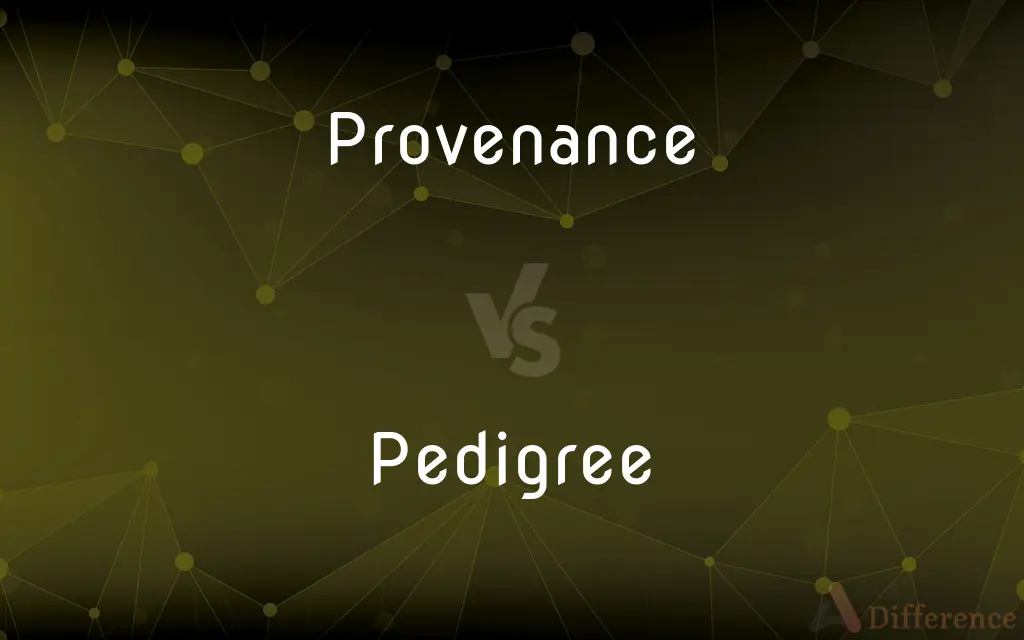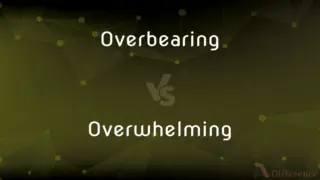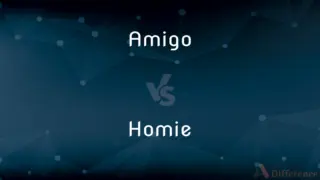Provenance vs. Pedigree — What's the Difference?
Edited by Tayyaba Rehman — By Urooj Arif — Updated on April 1, 2024
Provenance refers to the origin or history of an item, often used in art and antiques, while pedigree details the lineage or ancestry of living beings, especially in the context of breeding.

Difference Between Provenance and Pedigree
Table of Contents
ADVERTISEMENT
Key Differences
Provenance is crucial in understanding an item's history, authenticity, and value, especially in art and antiques. It traces the ownership and location of an item over time, providing a historical context that can affect its monetary and cultural worth. Pedigree, on the other hand, focuses on the lineage or ancestry of animals or humans, often used to certify the purebred status of animals like dogs, horses, and livestock. It documents generations of breeding, highlighting the traits, qualities, and genetic heritage passed down.
Provenance answers questions about where an item was created, who has owned it, and how it has been passed down through the years. Pedigree is essential for breeding programs aiming to enhance specific characteristics, such as temperament, physical attributes, or health conditions.
While provenance is concerned with the historical journey of objects, emphasizing their origin and changes in ownership, pedigree concentrates on biological heritage and genetic lineage. Both terms underscore the importance of history and background but from markedly different perspectives: one deals with inanimate objects and their cultural significance, while the other focuses on living beings and their genetic makeup.
Provenance can significantly impact the value of art and antiques, as items with a well-documented history are often more desirable to collectors. Authenticity and legality, supported by provenance, ensure that items are genuine and have not been illicitly acquired, influencing both the market and the historical significance of items.
Pedigree, in contrast, can influence the breeding and sale of animals. A well-documented pedigree may increase an animal's value, as it assures buyers of the animal's purebred status and potential to inherit desirable traits. This is particularly important in competitive and breeding circles, where lineage and genetic quality are paramount.
ADVERTISEMENT
Comparison Chart
Definition
History and origin of an item, especially in art and antiques.
Lineage or ancestry, especially regarding the breeding of animals.
Main Focus
Authenticity, history, and previous ownership of items.
Genetic heritage and lineage of living beings.
Significance
Affects an item’s cultural and monetary value.
Influences breeding quality and traits in animals.
Usage Context
Art, antiques, and cultural artifacts.
Animal breeding, especially for purebreds.
Documentation
Ownership records, transaction history, and historical context.
Family trees, breeding records, and genetic markers.
Compare with Definitions
Provenance
The origin or source of something.
The archaeologist studied the artifact to determine its provenance.
Pedigree
A diagram showing the lineage or genealogy of an individual or family.
The breeder provided a detailed pedigree of the puppy.
Provenance
The history of ownership of a valued object or work of art.
The provenance of the painting traced back to the 16th century.
Pedigree
The recorded ancestry, especially upper-class ancestry, of a person or family.
She boasted a pedigree that traced back to royalty.
Provenance
A record of ownership of a work of art, used as a guide to authenticity or quality.
The museum carefully documented the provenance of each item in its collection.
Pedigree
Genetic heritage passed down through generations.
Scientists studied the pedigree of the plants to understand their evolution.
Provenance
The place of origin of something.
The provenance of the gemstone was identified as Brazil.
Pedigree
An official document recording the lineage of an animal.
The horse’s pedigree listed several champion racers in its lineage.
Provenance
The beginning of something's existence.
The provenance of the concept can be traced back to ancient philosophy.
Pedigree
The background or history of a person or thing, especially as conferring distinction or quality.
The chef was proud of his pedigree in French cuisine.
Provenance
Provenance (from the French provenir, 'to come from/forth') is the chronology of the ownership, custody or location of a historical object. The term was originally mostly used in relation to works of art but is now used in similar senses in a wide range of fields, including archaeology, paleontology, archives, manuscripts, printed books, the circular economy, and science and computing.
Pedigree
A line of ancestors; a lineage.
Provenance
Place of origin; derivation.
Pedigree
A list of ancestors; a family tree.
Provenance
The history of the ownership of an object, especially when documented or authenticated. Used of artworks, antiques, and books.
Pedigree
A chart of an individual's ancestors used in human genetics to analyze Mendelian inheritance of certain traits, especially of familial diseases.
Provenance
The records or documents authenticating such an object or the history of its ownership.
Pedigree
A list of the ancestors of a purebred animal.
Provenance
Place or source of origin.
Many supermarkets display the provenance of their food products.
Pedigree
A continuous history or series of precedents, especially considered as evidence of respectability or legitimacy
"The practice of larding legislation with special interest lucre has, of course, a lengthy pedigree in American politics" (Jonathan Chait).
Provenance
(archaeology) The place and time of origin of some artifact or other object. See Usage note below.
This spear is of Viking provenance.
Pedigree
A chart, list, or record of ancestors, to show breeding, especially distinguished breeding.
Provenance
(arts) The history of ownership of a work of art
The picture is of royal provenance.
Pedigree
A person's ancestral history; ancestry, lineage.
Provenance
(computing) The copy history of a piece of data, or the intermediate pieces of data utilized to compute a final data element, as in a database record or web site (data provenance)
Pedigree
(uncountable) Good breeding or ancestry.
Provenance
(computing) The execution history of computer processes which were utilized to compute a final piece of data (process provenance)
Pedigree
The history or provenance of an idea, custom etc.
Provenance
(of a person) Background; history; place of origin
Pedigree
The ancestry of a domesticated animal, especially a dog or horse.
Provenance
To establish the provenance of something
Pedigree
Having a pedigree.
Provenance
Origin; source; provenience.
Their age attested by their provenance and associations.
Pedigree
Purebred.
Provenance
Where something originated or was nurtured in its early existence;
The birthplace of civilization
Pedigree
(transitive) To determine the pedigree of (an animal).
Pedigree
A line of ancestors; descent; lineage; genealogy; a register or record of a line of ancestors.
Alterations of surnames . . . have obscured the truth of our pedigrees.
His vanity labored to contrive us a pedigree.
I am no herald to inquire of men's pedigrees.
The Jews preserved the pedigrees of their tribes.
Pedigree
A record of the lineage or strain of an animal, as of a horse.
Pedigree
The descendants of one individual;
His entire lineage has been warriors
Pedigree
Line of descent of a pure-bred animal
Pedigree
Ancestry of a purebred animal
Pedigree
Having a list of ancestors as proof of being a purebred animal
Common Curiosities
What is a pedigree?
A pedigree is a record showing the lineage or ancestry of an individual, typically used for animals to denote purebred status.
How does pedigree affect animal breeding?
Pedigree affects animal breeding by documenting lineage and genetic traits, ensuring the quality and health of future generations.
What does a pedigree show?
A pedigree shows the ancestry or lineage of an individual, highlighting genetic relationships and heritage.
Why is provenance important?
Provenance is important because it provides authenticity, legal ownership, and historical context, affecting an item’s value and cultural significance.
What is provenance?
Provenance refers to the history of ownership and origin of a particular item, especially in the context of art and antiques.
Can humans have pedigrees?
Yes, humans can have pedigrees, usually in the context of tracing ancestry or family lineage, though it’s more commonly associated with animals.
How does one trace provenance?
Tracing provenance involves researching historical records, previous owners, and any documentation related to the item’s history.
How is provenance verified?
Provenance is verified through historical records, ownership documentation, and expert analysis to ensure authenticity.
Is provenance used only in art?
While provenance is prominently used in the art world, it applies to antiques and other culturally significant items as well.
Can provenance increase the value of an item?
Yes, provenance can significantly increase an item’s value if it has a notable history or association with prominent figures.
What is the difference between provenance and origin?
Provenance refers to the history of ownership and location of an item, while origin specifically refers to where and how something was created.
Why is pedigree important in animal competitions?
Pedigree is important in animal competitions to ensure animals meet breed standards and possess desired traits for the competition.
Are pedigrees only for purebred animals?
Primarily, pedigrees are used for purebred animals to document lineage, but they can also record the ancestry of non-purebred animals.
Can provenance affect the legality of owning an item?
Yes, provenance can affect legality, as items with unclear or dubious histories might have been acquired through illicit means.
How can provenance and pedigree be documented?
Provenance can be documented through ownership records and historical documents, while pedigrees are recorded in genealogical charts or breed registries.
Share Your Discovery

Previous Comparison
Overbearing vs. Overwhelming
Next Comparison
Amigo vs. HomieAuthor Spotlight
Written by
Urooj ArifUrooj is a skilled content writer at Ask Difference, known for her exceptional ability to simplify complex topics into engaging and informative content. With a passion for research and a flair for clear, concise writing, she consistently delivers articles that resonate with our diverse audience.
Edited by
Tayyaba RehmanTayyaba Rehman is a distinguished writer, currently serving as a primary contributor to askdifference.com. As a researcher in semantics and etymology, Tayyaba's passion for the complexity of languages and their distinctions has found a perfect home on the platform. Tayyaba delves into the intricacies of language, distinguishing between commonly confused words and phrases, thereby providing clarity for readers worldwide.















































